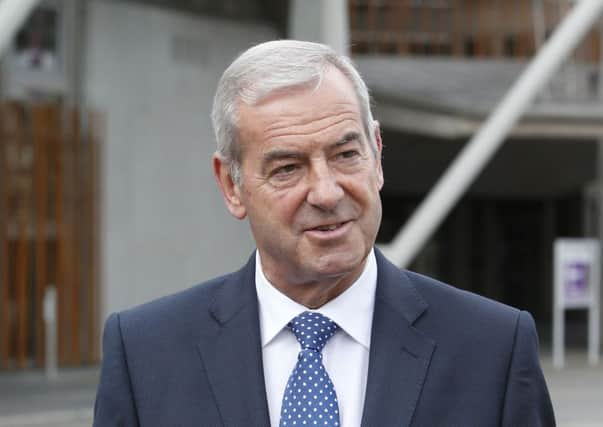New powers must be compatible with staying in UK


First, it has all the major parties involved. Second, its remit is clear: it is not just to consider Scotland’s constitutional future but to do that in the context of Scotland remaining part of the United Kingdom.
For the first time, all the actors are involved, and the purpose is clear: to work out a sensible model for further devolution for Scotland, recognising that Scotland’s future lies in the UK, not outside it, and that this must be decided soon.
Advertisement
Hide AdAdvertisement
Hide AdThe determination that Scotland’s future is within the UK is fundamental to what “more devolution” looks like.
Any solution must be compatible with remaining part of the UK, not an opt-out from it. Devo-max – devolution of all “domestic” functions, and tax-setting and collecting powers – is just such an opt-out. You cannot be part of a country while simply choosing not to participate in its financial arrangements, welfare system or most of its economic structure, which devo-max would mean.
You cannot be part of a country when you claim the right to undermine your fellow citizens whenever it suits you, as devo-max would imply. The referendum decision took that off the table, just as it took independence. Any attempt to reinstate that option is not only a waste of time but has to be regarded as a deliberate attempt to unpick the referendum decision and reverse its decisive character.
To be compatible with remaining part of the UK, “more devolution” also has to work for other parts of the country – not just England, but Wales and Northern Ireland too. This cannot be a case of Scotland simply grabbing what extra powers or advantages it can, whatever the consequences for the rest of the UK. It is about how Scottish self-rule can be effectively combined with shared rule for the UK as a whole, and the interests of the rest of the UK. Through the referendum, Scotland has chosen to “opt in”, and that implies a very different sort of constitutional debate to the one there has been up to now.
The Smith Commission has one other constraint, which is a source of strength as well as a challenge: the limited time for its work.
It is due to reach agreement by the end of November, following publication of a UK Command paper setting out issues by the end of October and leading to draft legislation by Burns Night 2015.
That is tight. There is no time for the introduction of new and extraneous issues. The three pro-UK party commissions, the Devo Plus group, and the IPPR’s Devo More project have all canvassed models for further devolution with clarity.
The Scottish Government has devoted much less work to options for further devolution, the best being the elaboration of full devolution (aka devo-max) in the 2009 white paper Your Scotland Your Choice. With that option now off the table, there is little clarity about what the SNP might propose, though Fergus Ewing has already suggested underground fracking for oil and gas. SNP contributions must be constructive, given the remit of the commission. Raising complex new issues with little preparation would be a transparent attempt to frustrate the process and stop the devolution of Scottish voters gaining control of further functions as was promised to them.
Advertisement
Hide AdAdvertisement
Hide AdAt long last – after multiple commissions, debates and a bruising if invigorating referendum campaign – Scotland’s constitutional debate has at last reached the point of all the parties discussing the same subject in the same room.
Let’s hope they can now deliver. • Alan Trench is an honorary fellow at the School of Social and Political Science, University of Edinburgh